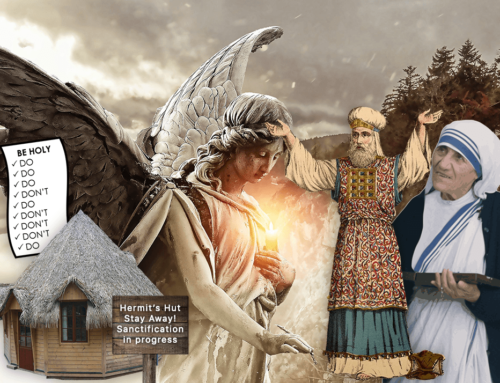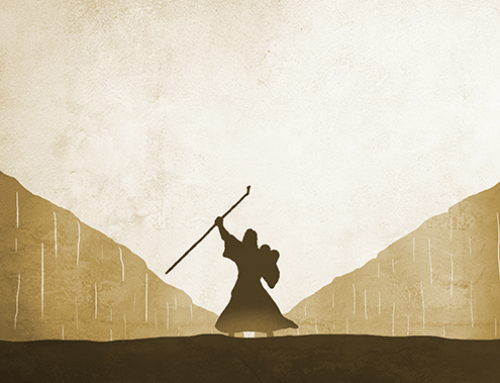 On the night of the Passover Feast, the night He was betrayed, Jesus knew exactly what was coming. Knowing He had but a few short hours, He chose to humble Himself and take on the role of a Servant. He laid aside His outer garments and attended to the needs of His disciples by washing their dirty feet (John 13:1-15).
On the night of the Passover Feast, the night He was betrayed, Jesus knew exactly what was coming. Knowing He had but a few short hours, He chose to humble Himself and take on the role of a Servant. He laid aside His outer garments and attended to the needs of His disciples by washing their dirty feet (John 13:1-15).
In one of the most beautiful Old Testament passages (Isa. 52:13-53:12), the prophet Isaiah writes of the Messiah, Jesus, whom he calls “the Righteous One, My Servant” (Isa. 53:11 NASB). Isaiah describes in great detail, not only the suffering of the Jesus, but how, in His suffering, He would bear the sins of many (Isa. 53:4-6, 11-12).
Isaiah writes,
He was despised and rejected—a man of sorrows, acquainted with deepest grief. We turned our backs on him and looked the other way. He was despised, and we did not care. (Is. 53:3 NLT)
When the Roman governor Pilate brought Jesus to the people and offered to release Him, the people allowed themselves to be influenced by the fervor of the moment and shouted, “Crucify Him!” When they walked past His body hanging on the cross, they looked the other way.
I wonder, how often do we look the other way? Do we look the other way when people around us are suffering – the very people whom Jesus bled and died for? Do we look the other way when Jesus asks us to do something for Him that is… inconvenient?
Yet it was our weaknesses He carried; it was our sorrows that weighed Him down. (Is. 53:4 NLT)
You have probably heard that Jesus died for your sins, but did you know that when Jesus carried the cross, He also carried your weaknesses? Did you know that when He suffered, He suffered for your sorrows as well as for your sins?
What are your weaknesses? Weakness is not sin, although we often allow our weaknesses to lead us into sin. Weakness is human frailty: our faulty understanding, our imperfect judgements, emotions that mislead us, bodies that succumb to sickness and fatigue. What are your weaknesses? Where do you falter? Did you know that Jesus carried your weaknesses to the cross?
Did you know that when Jesus collapsed under the weight of the cross, it was our sorrows that were heavy upon Him?
What does it mean for Jesus to carry our weaknesses and sorrows to the cross? It means that Jesus not only died to make eternal life possible, but also to make abundant life possible (John 10:10). Jesus offers grace to help you in your weakness and to comfort you in your sorrow. He proclaims, “My grace is sufficient for you, for my power is made perfect in weakness.” (2Cor. 12:9)
But he was pierced for our rebellion, crushed for our sins. He was beaten so we could be whole. He was whipped so we could be healed. (Is. 53:5-6 NLT)
Did you know that Jesus was whipped and beaten so that you might be made whole? When the soldiers punched Him in the face and mocked Him, it was for you and me that Jesus took every blow, every insult, every lash of the scourge. Every hunk of flesh that was torn from His body, that was for you and me. He took our punishment so that we could know His peace.
The night He was betrayed, Jesus told the disciples,
“I am leaving you with a gift—peace of mind and heart. And the peace I give is a gift the world cannot give. So don’t be troubled or afraid… I have told you all this so that you may have peace in me. Here on earth you will have many trials and sorrows. But take heart, because I have overcome the world.” (John 14:27, 16:33 NLT)
Do you know His peace? Do you value His peace enough to hold onto it when the trials and sorrows of life close in? Or do you defend your weaknesses and cling to your sorrows? Do you continue to stray like a wayward sheep, leaving His path to follow your own?
Once again, Isaiah writes,
He was oppressed and treated harshly, yet he never said a word. He was led like a lamb to the slaughter. And as a sheep is silent before the shearers, He did not open his mouth. Unjustly condemned, he was led away. No one cared that he died without descendants, that his life was cut short in midstream. But he was struck down for the rebellion of my people. He had done no wrong and had never deceived anyone. But He was buried like a criminal; he was put in a rich man’s grave.
But it was the LORD’s good plan to crush him and cause him grief. (Isa. 53:7-10a NLT)
Jesus knew the plan. He knew exactly what was ahead of Him. And He knew that by His obedience He would fulfill the Father’s plan. Jesus had the resolve to carry the plan through because He knew what would be accomplished:
Yet when his life is made an offering for sin, he will have many descendants. He will enjoy a long life, and the LORD’s good plan will prosper in his hands. When he sees all that is accomplished by his anguish, he will be satisfied. And because of his experience, my righteous servant will make it possible for many to be counted righteous, for he will bear all their sins. (Isa. 53:10b-11)
Jesus knew the good that would result from His obedience: He would welcome many into His family! Relationships would be restored! The Father’s plan would prosper and the desire of the His heart would be satisfied! Many would be counted righteous!
You see, Jesus took ownership of your sin and mine. He didn’t just write a check and pay off the debt, He who knew no sin claimed our sin as His own – it was no longer your sin or my sin, but His sin upon the cross. In doing so, He made it possible for you and I to be counted righteous. He took ownership of our sin so that we could receive His righteousness.
Because of Jesus, it is possible for we who believe to live our lives, moment by moment, in His righteousness and free from sin. At any given moment, I can choose to live the abundant life in righteousness and peace, in right relationship to God through Jesus Christ. Glory to God!
Pastor Cindy
[adapted from a sermon preached on Good Friday 2014]





This was very thought-provoking for me on a personal level – do I look away when others are in need, understanding that Jesus actually died for MY weaknesses also, remembering when I experienced God’s amazing Peace before my surgery, and taking me deeper in the understanding of what Jesus accomplished for us by dying on the cross!
He took it ALL so that I might live!!